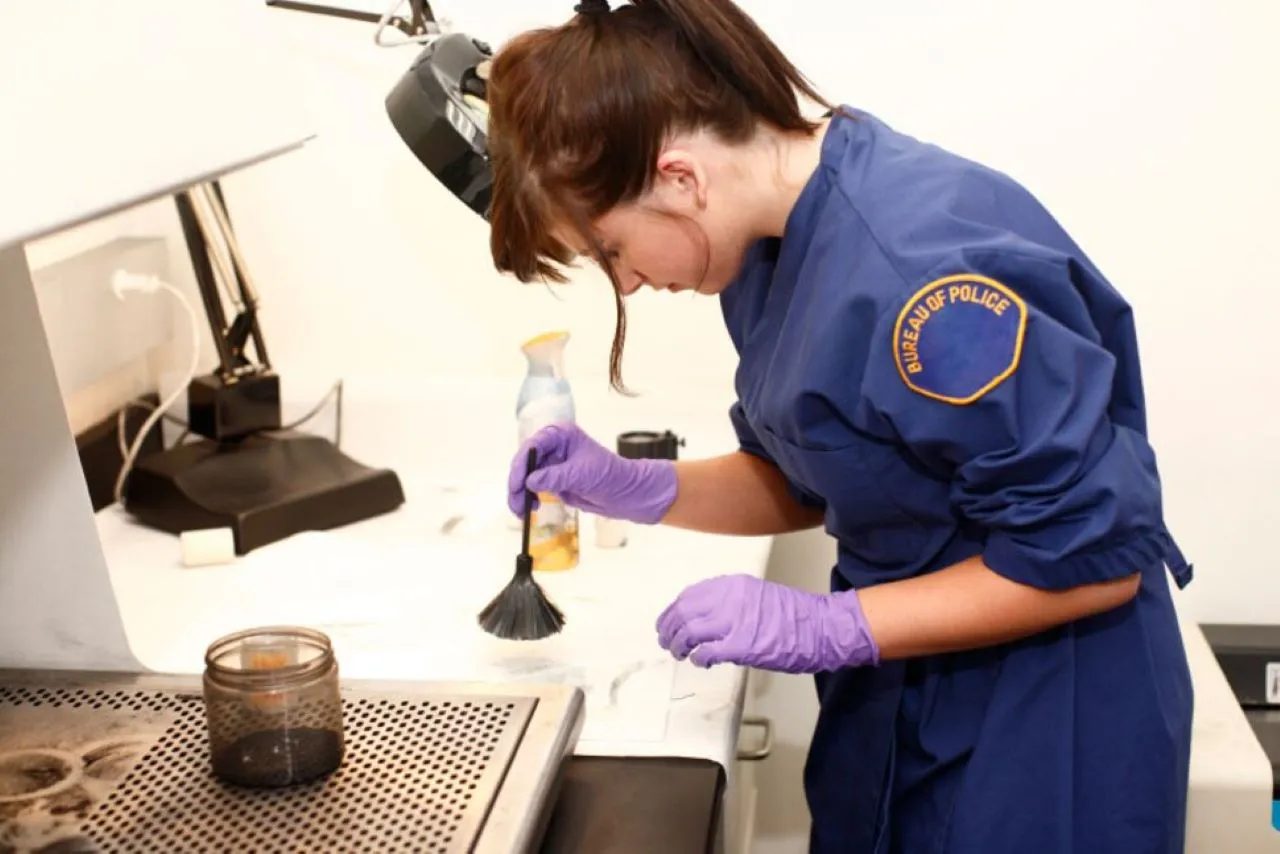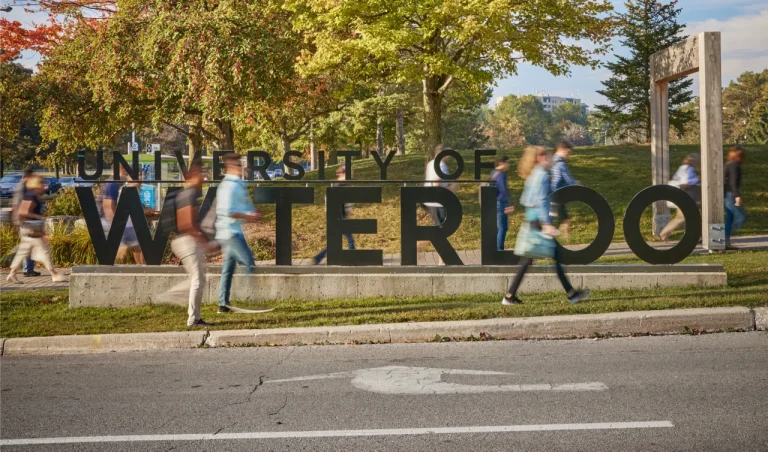The Best Majors For Forensic Science
Forensic science is a fascinating field that combines science, investigation, and law. For those interested in pursuing a career in forensic science, choosing the right college major is crucial to gain the knowledge and skills needed to be successful.
In this comprehensive guide, we will outline the top majors to consider for a career in forensic science and provide key details on curriculum, coursework, and career paths for each.
If you’re short on time, here are some quick recommendations for the best majors for forensic science: biology, chemistry, biochemistry, criminal justice, anthropology, or forensic science. Read on for more details on each of these top majors and what you can expect from the coursework and career opportunities.
Biology
Biology is one of the best majors for students interested in pursuing a career in forensic science. It provides a strong foundation in understanding the biological aspects of crime scene investigation and forensic analysis.
Studying biology as a major equips students with the knowledge and skills necessary to analyze biological evidence, such as DNA samples, blood spatter patterns, and insect activity.
Typical Courses
Students majoring in biology for forensic science can expect to take a range of courses that cover topics such as genetics, cell biology, microbiology, and anatomy. These courses provide a deep understanding of the biological systems and processes that are relevant to forensic science.
Additionally, students may also take specialized courses in forensic biology, forensic genetics, and forensic entomology to further enhance their knowledge in the field.
Key Skills
By studying biology, students develop important skills that are highly relevant to a career in forensic science. These skills include strong analytical and problem-solving abilities, attention to detail, and proficiency in laboratory techniques.
Biological majors also gain a solid understanding of scientific research methods and statistical analysis, which are essential for conducting accurate and reliable forensic investigations.
Careers
A biology major in forensic science opens up a wide range of career opportunities in both the public and private sectors. Graduates can work as forensic biologists, DNA analysts, crime scene investigators, or forensic toxicologists.
They may find employment in government agencies such as the Federal Bureau of Investigation (FBI), state crime labs, or private forensic laboratories. With the growing demand for forensic science professionals, graduates with a biology major can expect a rewarding and fulfilling career in this field.
Chemistry
Chemistry plays a crucial role in forensic science, as it involves the analysis of various substances found at crime scenes. Students pursuing a major in forensic science with a focus on chemistry can expect to take a variety of courses that provide a strong foundation in this field.
Typical Courses
- Organic Chemistry: This course introduces students to the principles and reactions of organic compounds, which are often encountered in forensic investigations.
- Forensic Analytical Chemistry: This course focuses on the techniques and instruments used to analyze evidence in forensic cases, such as spectroscopy and chromatography.
- Physical Chemistry: This course explores the principles of thermodynamics, quantum mechanics, and kinetics, which are essential for understanding chemical reactions.
- Inorganic Chemistry: This course covers the properties and reactions of inorganic compounds, including metals and non-metals, which are relevant in forensic science.
Key Skills
To excel in a chemistry-based forensic science major, students should possess strong analytical and problem-solving skills. They must also have a keen attention to detail and be proficient in laboratory techniques and instrumentation.
Additionally, knowledge of chemical safety protocols and the ability to interpret complex data are essential in this field.
Careers
A chemistry major in forensic science opens up a wide range of career possibilities. Graduates can work as forensic chemists, analyzing evidence in crime labs and providing expert testimony in court. They may also find employment in government agencies, such as the Federal Bureau of Investigation (FBI) or the Drug Enforcement Administration (DEA).
Other career paths include working in private laboratories or pursuing advanced degrees in chemistry or forensic science.
For more information on chemistry in forensic science, you can visit the American Chemical Society’s website: www.acs.org.
Biochemistry
Biochemistry is a major that provides a strong foundation for those interested in pursuing a career in forensic science. It involves the study of chemical processes and substances that occur within living organisms.
In the context of forensic science, biochemistry plays a crucial role in analyzing biological evidence such as blood, DNA, and other bodily fluids to determine key information about a crime scene.
Typical Courses
Students majoring in biochemistry for forensic science can expect to take a variety of courses to develop a strong understanding of the subject. Some typical courses include:
- Organic Chemistry
- Cell and Molecular Biology
- Forensic Chemistry
- Genetics
- Protein Chemistry
These courses provide students with the necessary knowledge and skills to analyze biological evidence using various techniques and instruments.
Key Skills
Majoring in biochemistry for forensic science equips students with important skills that are highly sought after in the field. Some key skills include:
- Strong analytical skills: Biochemists are trained to analyze complex data and draw conclusions from it.
- Attention to detail: In forensic science, even the smallest detail can be crucial in solving a case. Biochemists are trained to pay close attention to details.
- Laboratory skills: Biochemistry majors gain hands-on experience in laboratory settings, learning how to use various instruments and techniques.
- Problem-solving abilities: Biochemists are trained to approach problems in a systematic and logical manner.
Careers
A major in biochemistry opens up a wide range of career opportunities in the field of forensic science. Some potential careers include:
- Forensic biochemist: Analyzing biological evidence to determine key information about a crime scene.
- Forensic toxicologist: Analyzing bodily fluids and tissues to detect the presence of drugs or toxins.
- Forensic DNA analyst: Analyzing DNA samples to identify individuals involved in a crime.
- Forensic serologist: Analyzing blood and other bodily fluids to determine blood type and other information.
These careers offer opportunities to work in government agencies, crime laboratories, and private forensic science firms.
For more information on biochemistry as a major for forensic science, you can visit the American Chemical Society website.
Criminal Justice
Criminal Justice is a popular major for those interested in pursuing a career in forensic science. It provides a solid foundation in the legal system and the study of crime. Students pursuing this major will gain knowledge in areas such as criminal law, criminology, and forensic psychology.
Typical Courses
Students majoring in Criminal Justice will typically take a variety of courses that are relevant to forensic science. These may include:
- Introduction to Criminal Justice
- Forensic Science and Investigation
- Crime Scene Processing
- Forensic Psychology
- Criminal Law
Key Skills
Majoring in Criminal Justice equips students with a range of skills that are essential for a successful career in forensic science. These skills include:
- Analytical thinking and problem-solving abilities
- Attention to detail and the ability to work meticulously
- Strong written and verbal communication skills
- Knowledge of criminal behavior and the legal system
- Ability to work well under pressure and in high-stress situations
Careers
A degree in Criminal Justice can open up various career paths within the field of forensic science. Graduates can work as forensic science technicians, crime scene investigators, or forensic psychologists.
They may find employment in government agencies, law enforcement agencies, or private forensic laboratories. According to the Bureau of Labor Statistics, the median annual wage for forensic science technicians was $59,150 in May 2020.
For more information on careers in forensic science, visit the Bureau of Labor Statistics website.
Anthropology
Anthropology is a major that can be highly valuable for those interested in pursuing a career in forensic science. It involves the study of human societies and cultures, and can provide a solid foundation for understanding the complexities of human behavior and interactions.
Typical Courses
Students pursuing a major in anthropology can expect to take a variety of courses that are relevant to forensic science. These may include:
- Forensic Anthropology: This course focuses on the identification and analysis of human skeletal remains, providing students with knowledge of osteology, skeletal anatomy, and methods of determining cause and time of death.
- Human Evolution: This course explores the evolutionary history of humans, including the study of hominid fossils and the development of human physical and behavioral characteristics.
- Cultural Anthropology: This course examines the cultural practices and beliefs of different societies, providing insights into how cultural factors can influence forensic investigations and interpretations.
- Archaeology: This course introduces students to the methods and techniques used in archaeological excavations, which can be useful in the recovery and interpretation of forensic evidence.
Key Skills
Studying anthropology can help develop a range of key skills that are crucial for a successful career in forensic science. These skills include:
- Attention to detail: Anthropology requires careful observation and analysis of human remains, artifacts, and cultural practices, which can translate to meticulous attention to detail in forensic investigations.
- Critical thinking: Anthropology involves the development of analytical and critical thinking skills, enabling students to evaluate evidence and draw logical conclusions.
- Interdisciplinary approach: Anthropology is a multidisciplinary field that incorporates elements of biology, archaeology, sociology, and psychology. This interdisciplinary approach can be valuable in understanding the complexities of forensic investigations.
- Communication: Anthropology involves conducting research, presenting findings, and collaborating with others. Strong communication skills are essential for effectively conveying information and working as part of a forensic science team.
Careers
A degree in anthropology can open up various career paths within the field of forensic science. Graduates can work as forensic anthropologists, assisting in the identification and analysis of human remains in crime scenes.
They can also pursue careers as forensic archaeologists, specializing in the recovery and interpretation of evidence from archaeological sites. Additionally, graduates can find employment as crime scene investigators, forensic consultants, or researchers in forensic laboratories or academic institutions.
For more information on anthropology as a major for forensic science, you can visit www.americananthro.org.
Forensic Science
Forensic science is a fascinating field that combines elements of science, law, and investigation to solve crimes and provide evidence for legal proceedings. It involves the application of scientific principles and techniques to analyze physical evidence, often collected from crime scenes, and provide objective conclusions.
Typical Courses
Students pursuing a major in forensic science can expect to take a variety of courses that provide a solid foundation in both the scientific and investigative aspects of the field. Some typical courses include:
- Introduction to Forensic Science: This course provides an overview of the field and introduces students to the basic principles and techniques used in forensic investigations.
- Criminalistics: In this course, students learn about the collection, preservation, and analysis of physical evidence, including fingerprints, DNA, and trace materials.
- Forensic Chemistry: This course focuses on the chemical analysis of evidence, such as drugs, toxins, and arson residues.
- Forensic Biology: Students learn about the analysis of biological evidence, including blood, saliva, and other bodily fluids, as well as DNA analysis methods.
- Crime Scene Investigation: This course provides hands-on training in the proper collection and documentation of evidence at crime scenes.
These are just a few examples of the courses that students may encounter in a forensic science major. The curriculum may vary depending on the institution and specialization within the field.
Key Skills
Successful forensic scientists possess a range of skills that are essential for their work in solving crimes and analyzing evidence. Some key skills include:
- Attention to detail: Forensic scientists must have a keen eye for detail and be able to notice even the smallest of clues or inconsistencies.
- Analytical thinking: They must be able to analyze complex data and evidence to draw logical conclusions and provide objective opinions.
- Problem-solving: Forensic scientists often encounter unique challenges and must be able to think creatively to overcome them.
- Communication skills: They must be able to effectively communicate their findings, both orally and in writing, to colleagues, investigators, and in a court of law.
- Technical proficiency: Proficiency in the use of specialized forensic tools and software is crucial for conducting accurate analyses.
Developing these skills is an important part of a forensic science major, and students are often provided with opportunities for hands-on training and internships to further enhance their abilities.
Careers
A forensic science major can open up a wide range of career opportunities in both the public and private sectors. Graduates can work in crime laboratories, law enforcement agencies, government agencies, or as independent consultants. Some common career paths include:
- Forensic Scientist: These professionals work in crime laboratories and are responsible for analyzing evidence and providing expert opinions in criminal investigations.
- Crime Scene Investigator: They are responsible for collecting and documenting evidence at crime scenes, ensuring its preservation and proper handling.
- Forensic DNA Analyst: These analysts specialize in DNA analysis and play a crucial role in identifying suspects and victims in criminal cases.
- Forensic Toxicologist: They analyze bodily fluids and tissues to determine the presence of drugs, alcohol, or other toxic substances.
- Forensic Consultant: Some forensic scientists work as independent consultants, providing their expertise to law firms, private investigators, and other organizations.
It’s important to note that a forensic science major can also serve as a stepping stone to further education, such as a master’s or doctoral degree in a specialized area of forensic science. This can lead to even more advanced career opportunities or research positions.
Conclusion
Choosing a major for a career in forensic science requires weighing your interests and strengths in science, investigation, law, and working with evidence. While degrees in biology, chemistry, biochemistry, criminal justice, anthropology, and forensic science are all excellent preparations for this field, consider which option aligns best with your goals.
With a relevant bachelor’s degree, you will gain the foundation to pursue careers in forensics through advanced degrees, certifications, or entry-level roles. Focus on getting well-rounded coursework, hands-on lab and field experience, and developing key technical and analytical skills during your undergraduate program.







